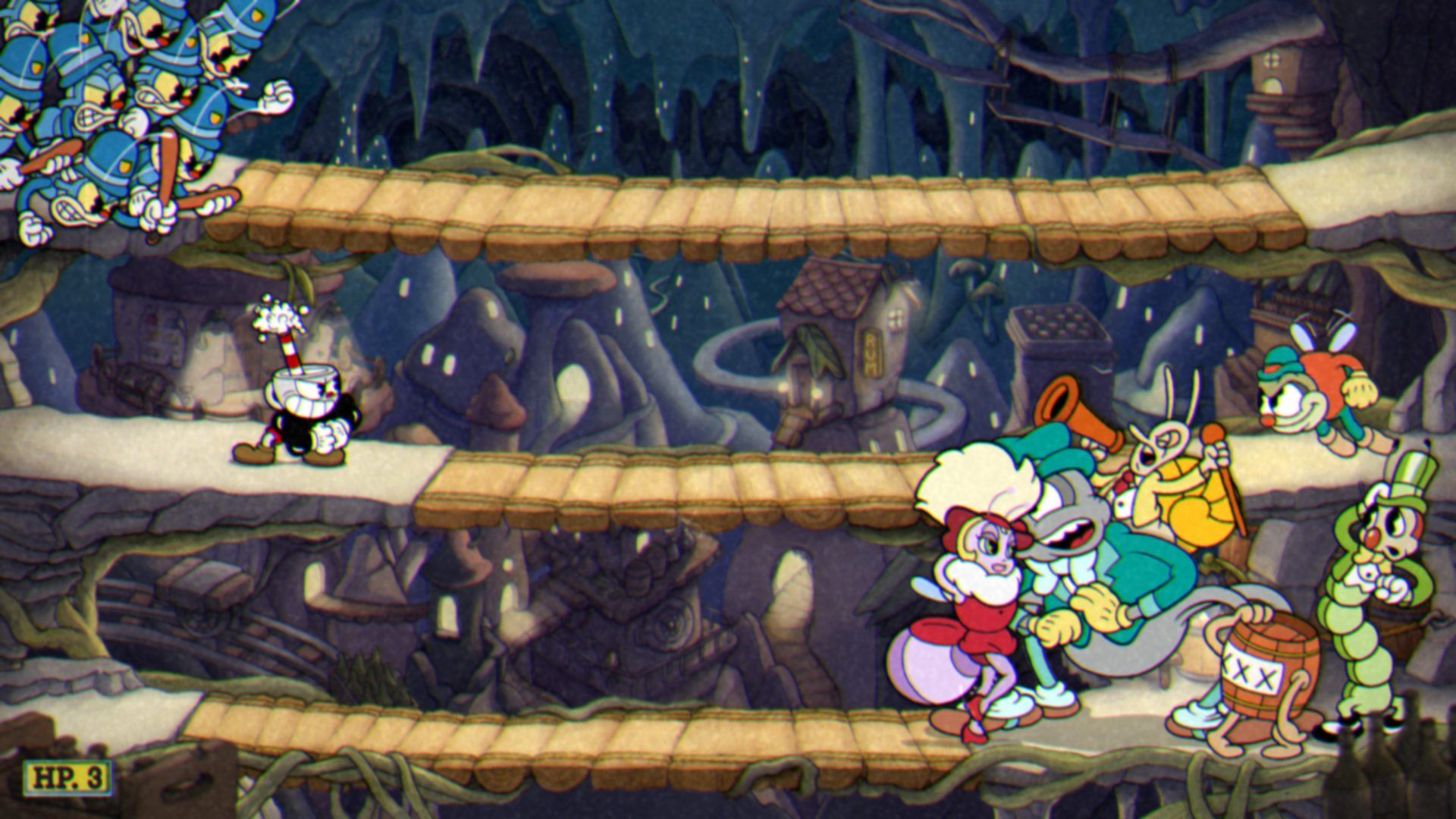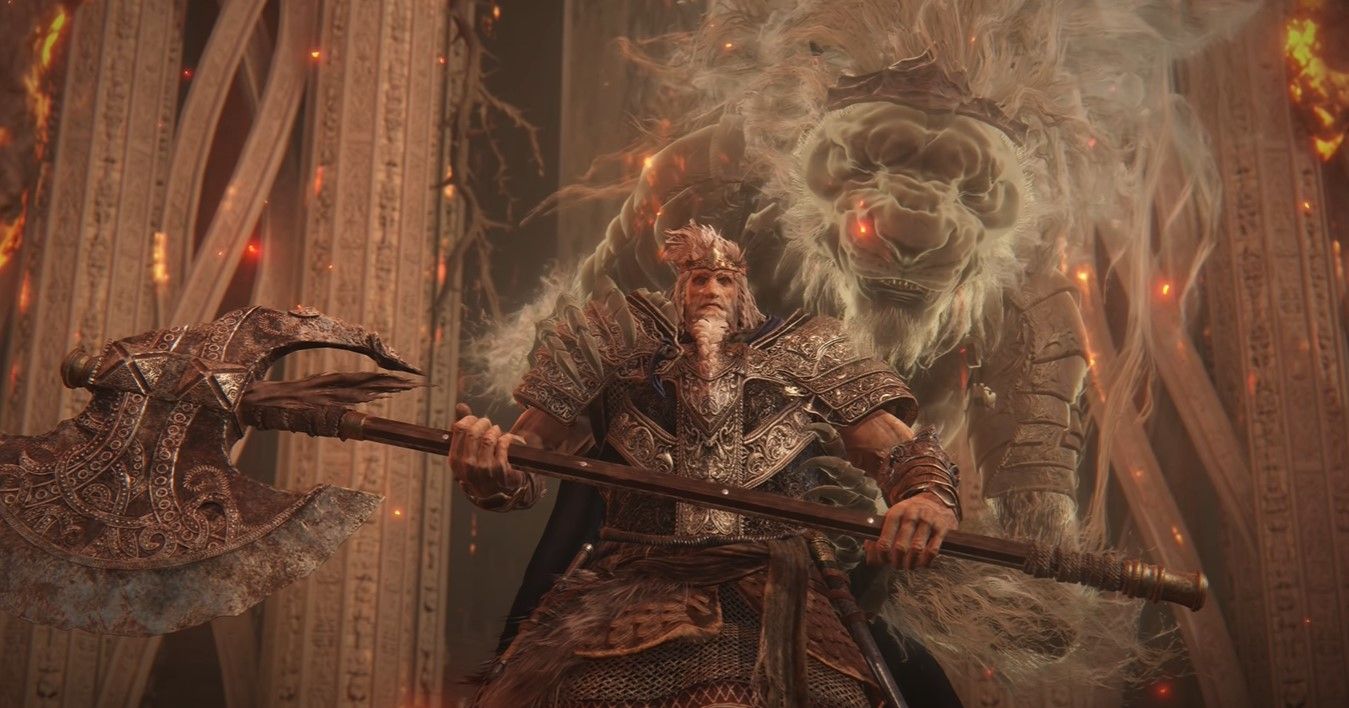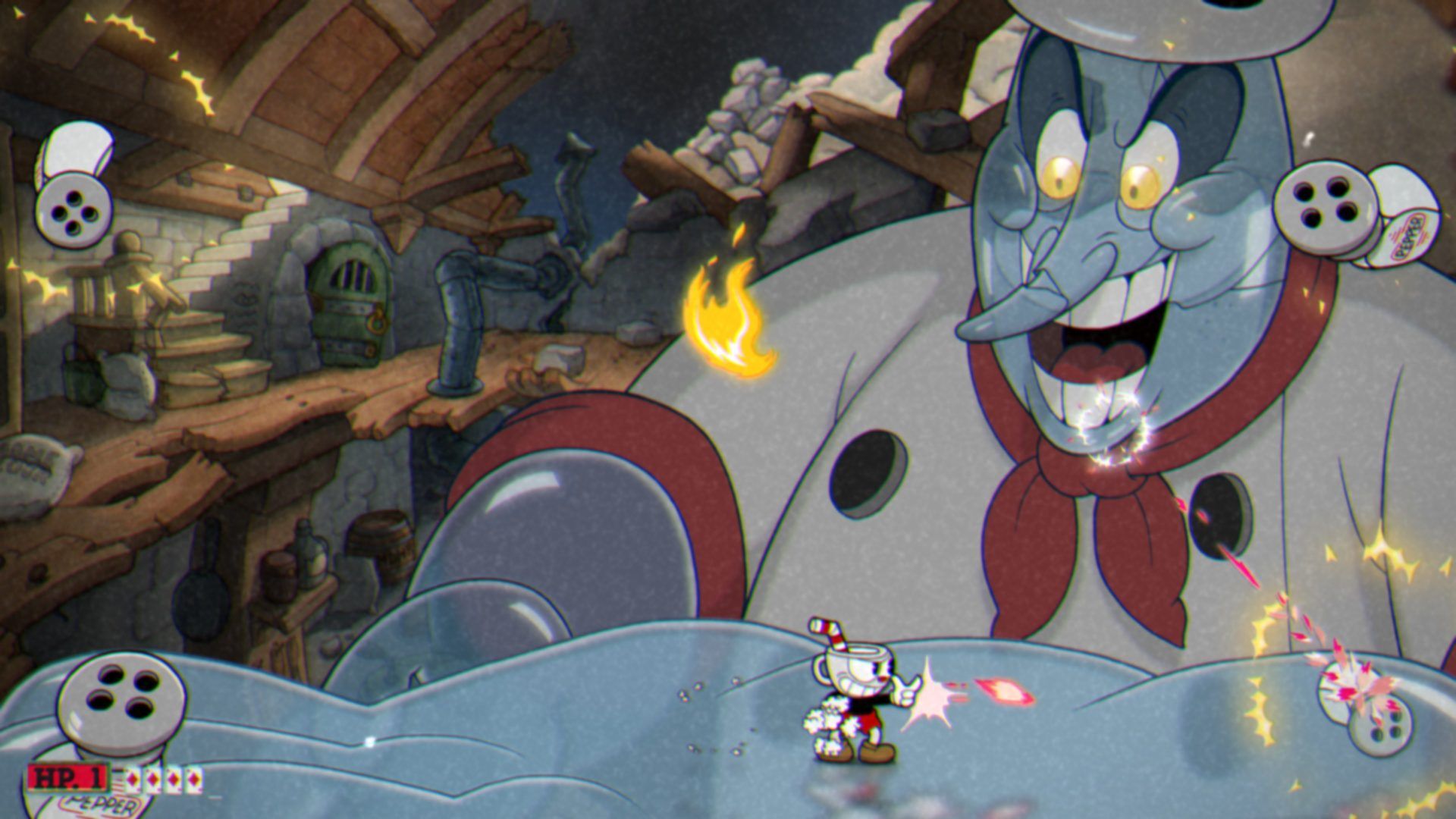It took me over 25 attempts to beat Esther Winchester, a wild western cow riding what can best be described as a 'saloon cart', in Cuphead: The Delicious Last Course. A couple of dozen sessions of tireless repetition, hyperfocus, and the slow, steady mastery of the rhythms and colourful attacks being thrown my way. Gradually, I'd learn that she has a moment of downtime after lassoing a giant cactus towards me, that if I don't shoot down that flying dog-thingy it'll eventually shoot a little cactus chunk that I can parry, and that in her third phase (when she turns into a anthropomorphic mass of stringed-together sausages) the key is to dodge up and down a lot.
The steady and clean (yet intense and frenetic) influx of information that I absorb each time I fight and fail against this and every other boss in the Cuphead DLC means that, even across dozens of deaths, these beautiful battles never become tedious.
There were plenty of complaints about developer StudioMDHR's decision years ago to shift Cuphead from a side-scrolling shooter-platformer into what's now essentially a Boss Rush game, but that decision has helped it become a beacon of gruelling yet fair boss design.
Something I wrote in my review of the Cuphead DLC is that once you finds its rhythm, you become 'part of the machine;' your understanding of each of the moves, even as they start overlapping each other and coming at you all at once, makes you so attuned to it that you merge with this monster that's trying to destroy you. Something that helps in attaining this state is that each battle takes place on a single screen, and your eyes are naturally attracted to every beautifully drawn element coming towards you. Every element is visually distinct, remaining clear even amidst all the chaos.
Once you get into this state, the game really becomes a sight to behold to an onlooker, but as the player you're barely seeing anything; your eyes are somehow focused on four things at once and yet none of them individually as you finally begin to crack the challenge in front of you at the 25th time of asking.
You're The Matrix's Neo once he starts seeing binary, you're Game of Thrones' clairvoyant Bran with his eyes rolled into the back of his head - unseeing yet all-seeing at the same time. Then you hear the game's announcer shout 'It's a Knockout!', and you return to reality.
Another series that's renowned for its climactic boss battles is From Software's Soulsborne series, along with its most recent outing Elden Ring. Historically, the series has some of the best boss designs, rewarding patient players who take time to read the boss' moves, but also those who have the bravery to exploit the openings that appear. Elden Ring seems to continue that design philosophy through its early going, with tough but manageable fights in the likes of Godrick the Grafted, Margit, and Rennala. But by the game's later stages the boss fights become a chore, escalating in difficulty at the expense of clarity, satisfying rhythm, and, well, fun.
The seemingly endless flurries and self-healing of Malenia, the Area-of-Effect attacks and explosive attacks of Godfrey and the Elden Beast, the ineligible mess of limbs that is the Grafted Scion - things get messy, and the encounters start to feel like battles of attrition across multiple deaths. Sure, the average player will get there eventually, but does it really feel like an achievement if it took you 50 tries to do it?
So you go online, sift through the dozens of posts by fellow players asking for help, and find out that actually the Godskin Apostle can easily be put to sleep, or that Malenia can be staggered - you just have to go to Rennala and re-spec as a Strength build - or that the Mimic Tear is a great decoy for every boss fight. But this whole process - from the research to the respecs to the obscure in-game items - pulls you away from just being in the fight.
The same goes for summoning players to your aid which, although welcome, seems reliant on the boss AI not really knowing what to do when faced with more than one player. The magic of the duel is lost as you're forced into the fiddly business of optimising builds, online research, and inventory management.
In Cuphead: The Delicious Last Course, not once did I despair, or swear under my breath, or seek help online. Its boss battles take me back to, well, the Cuphead base game for a start, but with their clear boss patterns and elegant rhythm they also recall the great duels from the FromSoft games - Knight Artorias from Dark Souls, Gascoigne and Gehrman from Bloodborne, the tough but perfectly weighted 'big slow oaf alongside speedy small trickster' of Ornstein & Smough…
All the information you need in Cuphead's boss battles is right there on your screen, and your ability to conquer these battles is distributed between your mind and your fingertips on the controller. 'Git gud' gets a bad rap, but in Cuphead - as in FromSoft games of yore - that applies in a way that feels healthy. Yep, you need to keep trying and trying and yep, you need to do this shit over and over, but you'll get there sooner rather than later, and once you do, it feels incredible. It's not an easy journey, and these games definitely aren't for everyone, but for those of us in their grasp the reward justifies the tribulation.
In Elden Ring, meanwhile, 'Git gud' is not so much applicable as 'Git cycling through your inventory and git reading on Reddit to find out the right combo of Weapon Arts, tactics, items, and builds to defeat this particular boss.' Yes, you'll always have the people on Reddit casually saying things like 'I beat Godfrey first time, armed only with a fire poke and completely naked except for a pillow wrapped around my head,' but most of us normies have neither the time nor the gaming physiology for that.
Frankly, it gets a little tiring to either bang your head against a boss across two whole evenings, or rifle through your inventory in search of 'That One Item' capable of bringing them to their knees, or cycle through your weapon arts to see whether this boss is more vulnerable to Frost or Bleed damage.
Cuphead: The Delicious Last Course has managed to distil great boss design into something mechanically simple, and communicatively clear. It's not easy, but the steady sense of progress it gives you with each run (demarcated by a bar showing how close you got to the finish line after each death) spurs you on.
Many of these ideas aren't revolutionary; they're in fact veritably old school, harking back to the days of Contra, arcade schmups, and the bosses of earlier Castlevania games. This is something that From Software used to be the masters of, but it feels like they've lost their way lately, and may need to play a certain old-timey cartoon platformer-shooter to rediscover that old boss-battle magic.




